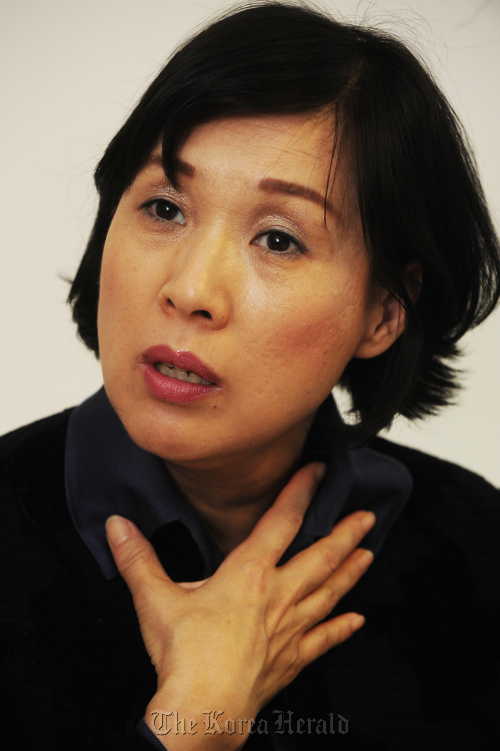Will smokers be compensated for the cancer they develop after smoking cigarettes for decades without knowing its harms?
Moreover, will the court find tobacco firms guilty of selling carcinogens without appropriate warnings?
The answers now depend on the Supreme Court justices as six smokers and 25 of their relatives have filed a suit against KT&G, the tobacco manufacturer here, over the prevalence of cancers believed to have been caused by decades-long smoking habit. They have demanded a total of 360 million won ($320,000) in compensation.
The Seoul Central District Court and the Seoul High Court took 12 years to rule in favor of the tobacco maker, acknowledging that smoking increases cancer prevalence but requiring individuals to verify that smoking was the direct cause of their cancer. To successfully sue, the patients must also show that tobacco firms have concealed information about the harm that cigarettes have on human health.
“We have secured information that KT&G had factsheets about the fatality of cigarettes from the 1960s. We have also gathered testimonies from world-class doctors and scholars who gladly spoke up for the truth of cigarettes leading to death. However, the judge said that he had to be extra-prudent because he was concerned about the possible breakdown of KT&G once the ruling goes against it,” said Bae Keum-ja, a lawyer for the plaintiffs. “It seems the court is taking the side of a poison maker.”
Bae, who graduated from Harvard Law School with studies on cigarette litigation, admitted that the struggle will be long and might not produce the result they are looking for.
“KT&G has refused the court’s settlement offer to establish a public foundation dedicated to antismoking campaign. Unless a whistleblower turns up to reveal crucial facts that support our claims from the inside, the chances are not so high,” she said.
Bae said the reason she could not let go of the case is because she believes in social justice.

Bae Keum-ja
Among the six cancer patients, five have died and the last is now in critical condition.
“They had puffed for decades without anyone telling them not to smoke. It was 1986 when the first warning message was printed on the cigarette packaging. Moreover, it was only 2002 when the government decided to privatize the Korea Tobacco and Ginseng Corporation. Who would have really had a clue that the cigarette would kill them at last?” she said.
The lawyer blamed the government for ill management of tobacco firms.
“Imagine: If you have opium addict problems in a country, the first thing the administration would do is to ban the distribution and moreover, manufacture of the drugs to root them out. Punishment for the addicts would come later,” she said.
“However, it is cigarettes we are talking about. It is more addictive than any other materials and is smothered in various carcinogens as well as other poisons. Doesn’t it sound obligatory for the administration to take a hands-on approach to the issue?” she said.
Park Ghyo-sun, lawyer for KT&G, said there are still many smokers who haven’t been diagnosed with any diseases and nonsmokers who have been diagnosed with lung cancers. “We respect medical experts’ warning on the possible health threat of smoking but at the same time, the patients should prove that cigarettes are solely to blame for their suffering,” he said, refuting Bae’s claims.
He said the company has displayed several reports on the possible harmful effects of smoking at the National Assembly’s library for public access.
Park said that the tobacco firm has been devoted in many social campaigns and cigarettes are just an item of personal preferences.
“KT&G feels uncomfortable being labeled a toxin producer,” he said, adding that the tobacco manufacturers are ready to settle the issue with the plaintiffs under certain circumstances.
Bae refuted Park’s claim, saying that passive smoking also poses huge threat on nonsmokers. Toxic chemicals ― many of which are carcinogens ― are found in secondhand smoke, including benzene, benzopyrene, formaldehyde, ammonia and hydrogen cyanide. It has also been found that secondhand smoke contains twice as much nicotine and tar and five times the amount of carbon monoxide as the smoke inhaled by the smoker.
Bae also called for enhanced public awareness of the issue. “If a carcinogen was detected in a single item of food, the whole society would panic. People would demand thorough investigation and correctional orders.
If that didn’t work, they would ask for ban on the food,” she said.
“Why don’t we do it now on cigarettes? We could all die of it!” she said.
By Bae Ji-sook (
baejisook@heraldcorp.com)





![[From the Scene] Monks, Buddhists hail return of remains of Buddhas](http://res.heraldm.com/phpwas/restmb_idxmake.php?idx=645&simg=/content/image/2024/04/19/20240419050617_0.jpg&u=20240419175937)
